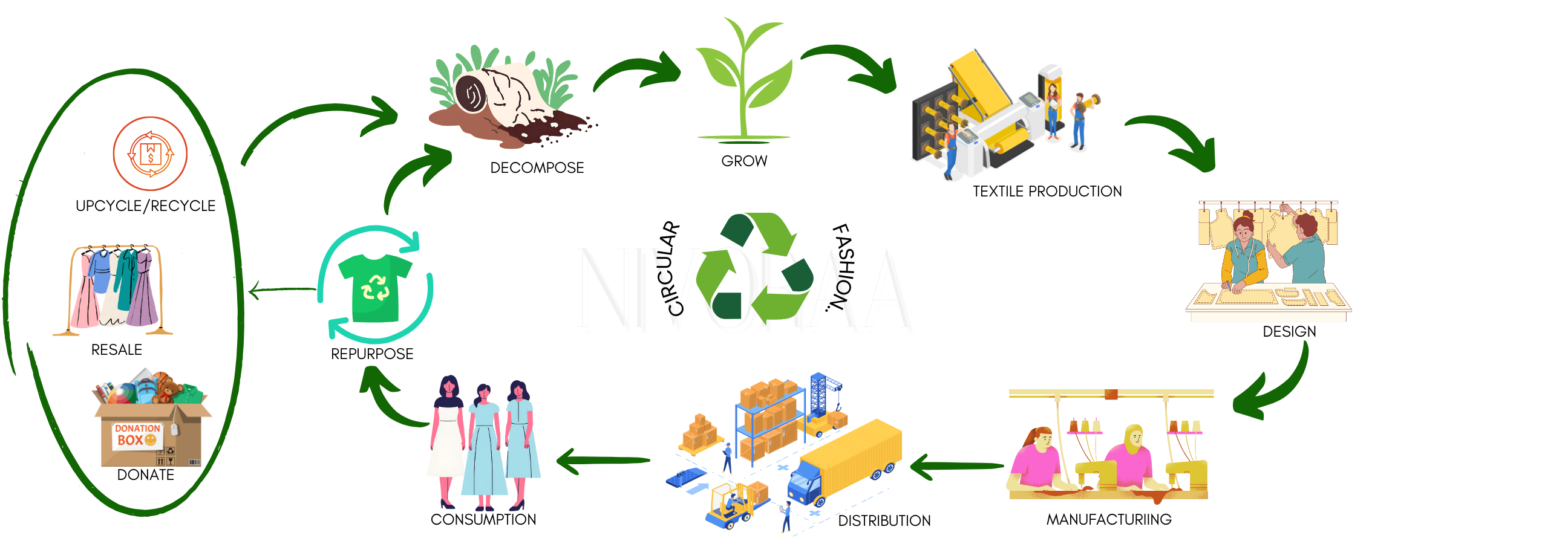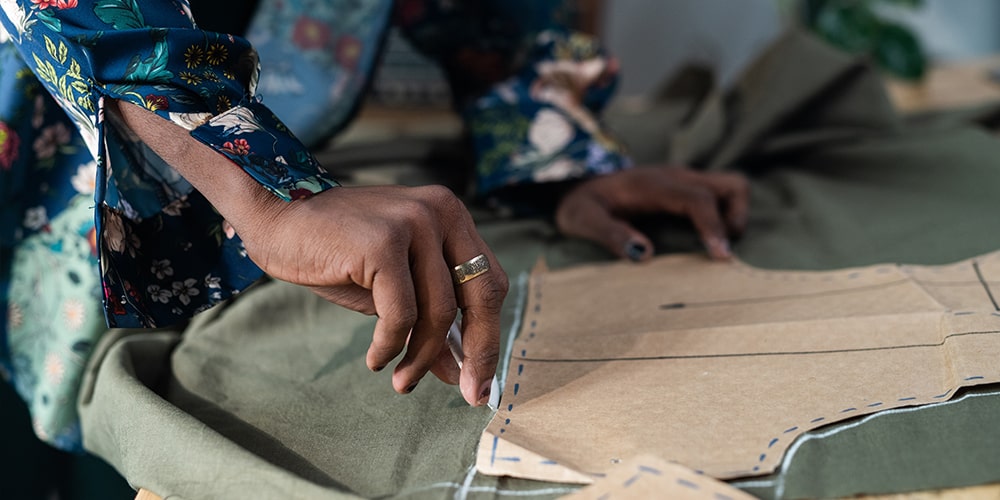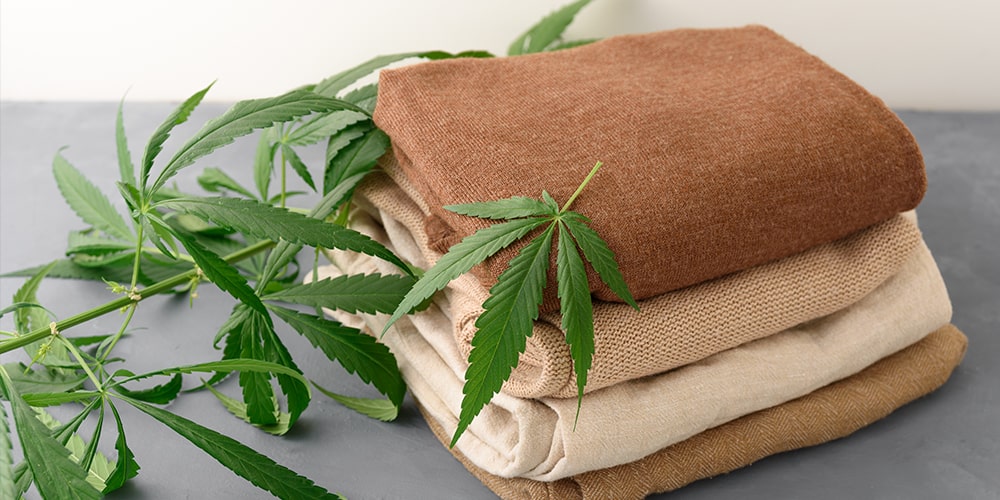
Slow Fashion vs Fast Fashion: Why Quality Trumps Quantity
In today's fast-paced world, the fashion industry is characterized by two contrasting paradigms: fast fashion and slow fashion. While fast fashion prioritizes mass production, low costs, and rapid turnover of trends, slow fashion champions quality, sustainability, and ethical production practices. In this blog post, we'll explore the differences between slow fashion and fast fashion, examine the environmental and social implications of each approach, and highlight why quality ultimately triumphs over quantity in the realm of fashion. Additionally, we'll touch upon how startups like Nivoraa are embracing the principles of slow fashion to redefine the industry landscape.
Understanding Slow Fashion vs Fast Fashion:
- **Fast Fashion**: Fast fashion is synonymous with speed and disposability. Characterized by rapid production cycles, low-cost manufacturing, and trend-driven designs, fast fashion brands churn out new collections at breakneck speed to keep up with ever-changing consumer demands. However, this emphasis on quantity over quality comes at a significant environmental and social cost, including pollution, resource depletion, and exploitative labor practices.
- **Slow Fashion**: Slow fashion, on the other hand, represents a more deliberate and sustainable approach to clothing production and consumption. Rooted in principles of craftsmanship, longevity, and ethicality, slow fashion prioritizes quality over quantity, favoring timeless designs, durable materials, and transparent supply chains. By advocating for conscious consumption, minimalism, and respect for artisans and the environment, slow fashion seeks to create a more equitable and sustainable fashion ecosystem.
The Environmental and Social Implications:
- **Environmental Impact**: Fast fashion's relentless pursuit of cheap, disposable clothing exacts a heavy toll on the environment. From the overconsumption of natural resources like water and land to the pollution caused by toxic chemicals and textile waste, fast fashion contributes significantly to environmental degradation and climate change. In contrast, slow fashion promotes sustainable practices such as eco-friendly materials, zero-waste production, and circular economy models, minimizing its environmental footprint and fostering long-term ecological resilience.
- **Social Consequences**: The fast fashion industry is notorious for its exploitative labor practices, including low wages, unsafe working conditions, and child labor. In pursuit of ever-cheaper production costs, fast fashion brands often outsource manufacturing to countries with lax labor regulations, leading to human rights abuses and worker exploitation. In contrast, slow fashion prioritizes fair wages, safe working conditions, and artisanal craftsmanship, valuing the dignity and well-being of workers throughout the supply chain.
Why Quality Trumps Quantity:
- **Longevity and Durability**: Quality garments are built to last, standing the test of time and outlasting fleeting trends. Unlike fast fashion pieces that quickly lose their shape, color, and integrity after a few wears, high-quality clothing retains its beauty and functionality for years to come, reducing the need for frequent replacements and minimizing waste.
- **Timeless Style**: Quality garments transcend seasonal fads and trends, embodying timeless elegance and sophistication. Instead of chasing after the latest fashion craze, slow fashion embraces classic designs and enduring aesthetics that remain relevant season after season, allowing individuals to express their personal style without succumbing to the pressures of fast fashion's disposable culture.
- **Environmental and Social Responsibility**: By investing in quality clothing from brands that prioritize sustainability and ethical production practices, consumers can align their values with their purchasing decisions. Supporting slow fashion brands not only reduces the demand for environmentally harmful and socially exploitative fast fashion but also fosters a more equitable and sustainable fashion industry as a whole.
Nivoraa: Redefining Fashion with Slow Fashion Principles:
As a startup in the fashion industry, Nivoraa embodies the ethos of slow fashion, challenging the status quo and redefining what it means to create clothing with integrity and purpose. By prioritizing quality craftsmanship, sustainable materials, and ethical production practices, Nivoraa sets itself apart from the fast fashion frenzy, offering consumers an alternative that aligns with their values and beliefs. With a commitment to timeless designs, durability, and social responsibility, Nivoraa paves the way for a more sustainable and equitable future in fashion.
In the ongoing debate between slow fashion and fast fashion, the merits of quality over quantity are undeniable. While fast fashion may offer cheap and trendy clothing at a rapid pace, its environmental and social costs are too steep to ignore. Slow fashion, with its emphasis on craftsmanship, sustainability, and ethicality, offers a more conscientious and sustainable alternative—one that values longevity over disposability, integrity over profit, and people and planet over corporate interests. By embracing the principles of slow fashion and supporting brands like Nivoraa, individuals can contribute to a more equitable, sustainable, and stylish future for the fashion industry and beyond.
Blog written by Nishi Arora | 3-4 mins read





